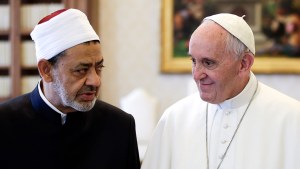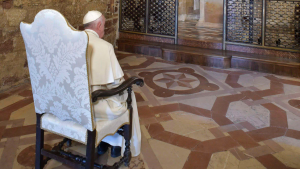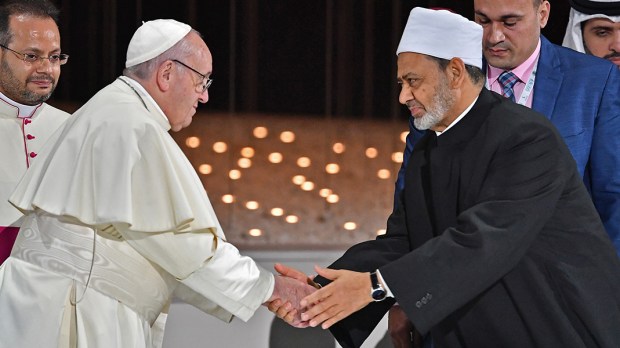Lenten Campaign 2025
This content is free of charge, as are all our articles.
Support us with a donation that is tax-deductible and enable us to continue to reach millions of readers.
As Pope Francis signs his new encyclical on human fraternity and solidarity, Fratelli tutti, he echoes the words of previous popes, such as Pope Benedict XVI.
Pope Benedict laid out in his encyclical Caritas in Veritate his belief that reason by itself could not establish human fraternity.
Underdevelopment has an even more important cause than lack of deep thought: it is “the lack of brotherhood among individuals and peoples.” Will it ever be possible to obtain this brotherhood by human effort alone? As society becomes ever more globalized, it makes us neighbors but does not make us brothers. Reason, by itself, is capable of grasping the equality between men and of giving stability to their civic coexistence, but it cannot establish fraternity.
The key for Pope Benedict was in the divine source of fraternity.
This originates in a transcendent vocation from God the Father, who loved us first, teaching us through the Son what fraternal charity is. Paul VI, presenting the various levels in the process of human development, placed at the summit, after mentioning faith, “unity in the charity of Christ who calls us all to share as sons in the life of the living God, the Father of all.”
Jesus is the key to fraternity, loving each other in an authentic way.
This urgency is also a consequence of charity in truth. It is Christ’s charity that drives us on: “caritas Christi urget nos” (2 Cor 5:14). The urgency is inscribed not only in things, it is not derived solely from the rapid succession of events and problems, but also from the very matter that is at stake: the establishment of authentic fraternity.
Pope Benedict greatly desired that a lasting brotherhood among all people would be established, but believed God should be our driving force.

Read more:
Pope and Muslim leader call for a World Day of Human Fraternity

Read more:
Pope to sign new encyclical in Assisi on October 3

